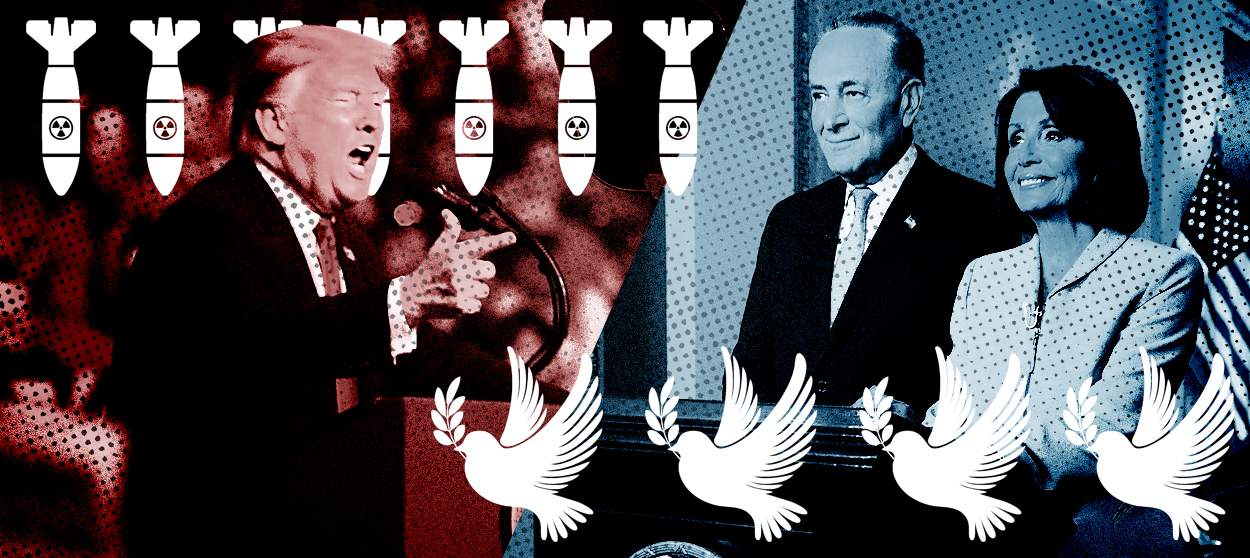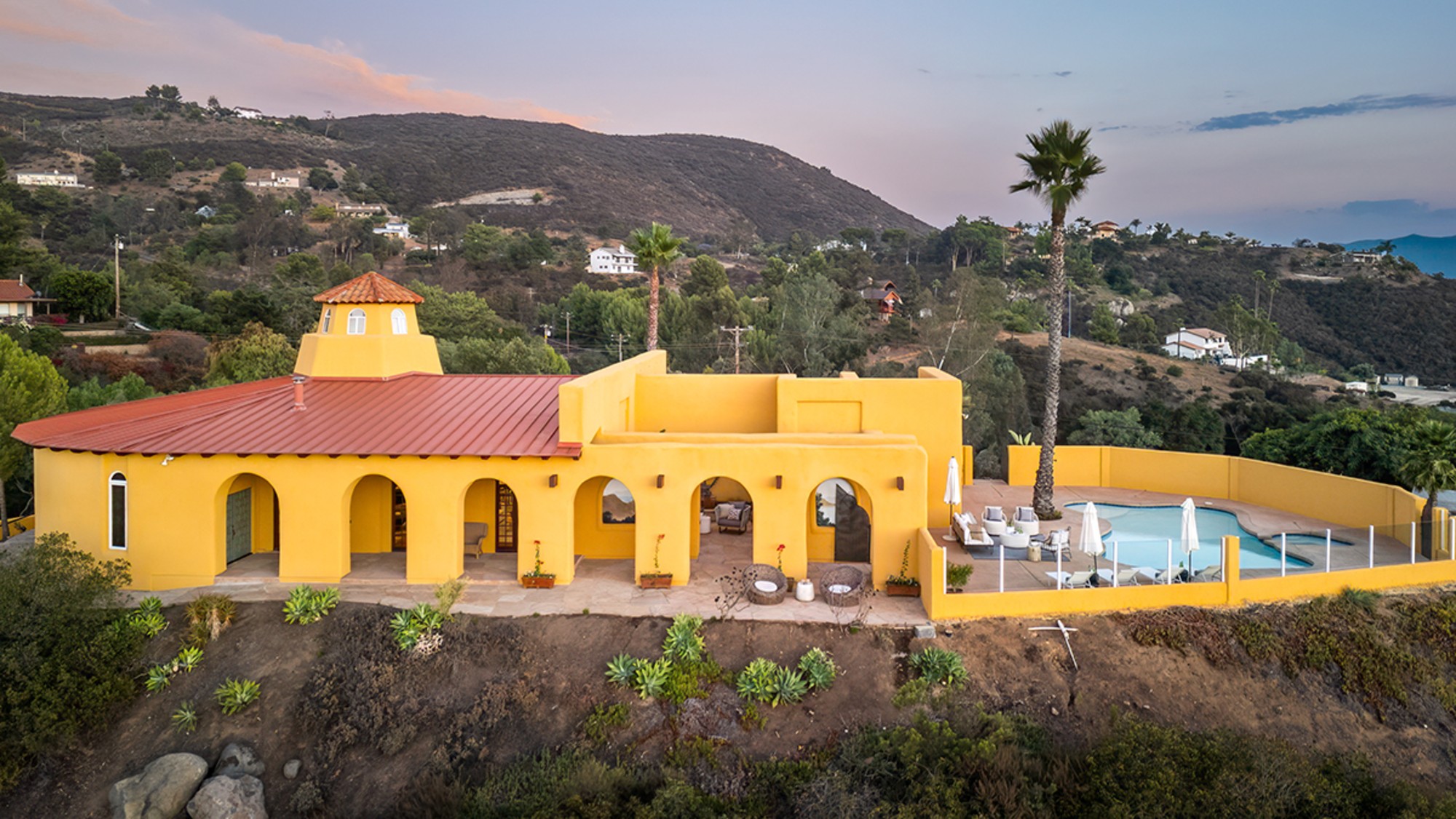The GOP's asymmetrical political warfare
The 2020 election won't just be a contest between two candidates. It will be a contest between two sharply contrasting styles of electoral politics.


The 2020 election is going to pit Republican Donald Trump against one of the 20 (and counting) Democrats vying to replace him. But it's also going to be a contest between two sharply contrasting styles of electoral politics.
When it comes to this question of style or approach to politics, the Democrats are the traditionalists. Electoral politics in its classical form is a contest between parties for political power, with voters choosing between competing positive visions of the common good. Each side in the contest makes a different pitch, and the winner is whichever party persuades the greater number of voters to sign on. The result is a mandate to enact policies that help to realize this ideal view of the country and its future.
This approach to democratic politics has been breaking down in recent years, especially at the presidential level, as rising polarization has combined with the declining electoral viability of the GOP. Ronald Reagan won re-election in 1984 with nearly 59 percent of the vote. Thanks to the vagaries of the Electoral College, Donald Trump managed to (barely) prevail in 2016 with just 46 percent, and his aggregate approval rating only rarely rises above 42 percent. That's not enough to consistently prevail in a two-party contest.
The Week
Escape your echo chamber. Get the facts behind the news, plus analysis from multiple perspectives.

Sign up for The Week's Free Newsletters
From our morning news briefing to a weekly Good News Newsletter, get the best of The Week delivered directly to your inbox.
From our morning news briefing to a weekly Good News Newsletter, get the best of The Week delivered directly to your inbox.
This has helped to persuade Republicans to abandon the classical approach to achieving and maintaining political power. In addition to their efforts at voter suppression (accomplished in part by hyping unsubstantiated fears of voter fraud), Republicans have opted to go completely negative. This is the electoral version of asymmetrical warfare — the battle strategy frequently adopted by the weaker side in a military conflict. It involves attempting to beat a more powerful adversary by playing dirty, using any advantage at hand, and basically doing anything necessary to win.
In the case of Trump, it has even included a willingness to rely on help from a foreign government's intelligence service. But we can also see the asymmetrical approach at work in the right's somewhat less flamboyant but still over-the-top efforts to promulgate a hyperbolic caricature of the opposition — efforts that are guaranteed to continue and intensify as the 2020 contest heats up. So the Democrats are bound to be portrayed as deranged socialists maniacally devoted to turning the U.S. into Venezuela, anti-religious lunatics who despise authentic Christianity and hope to wield state power to stamp it out, baby-killing abortion fanatics who swoon at the thought of infanticide, and anti-Israel bigots who not-so-secretly admire Islamic terrorists.
The idea is to portray the Democrats as so uniformly terrible, such a threat to everything good about the United States, that undecided voters and even some who despise Donald Trump are persuaded to join his unwavering base of supporters in voting for him — on the rationale that "the devil we know is better than the even more terrifying devil conjured up in a hundred inflammatory videos promoted by the president's Twitter account."
When pushed to its furthest extreme, this asymmetrical approach to politics need include no positive message at all, beyond the implied negation of everything the other side supposedly stands for.
A free daily email with the biggest news stories of the day – and the best features from TheWeek.com
The negativity doesn't only flow in one direction, of course. The Democrats throw plenty of abuse at the GOP, and especially at Trump. But there are important differences. For one thing, much of what the Democrats say about Trump is actually true. A president who launched his campaign with a speech denouncing Mexican rapists, who describes the places from which many immigrants originate as "shithole countries," displays plenty of evidence of racism and xenophobia. Evidence of Trump's corruption and authoritarian instincts is equally abundant.
But the more significant distinction between the parties is the unwillingness of the Democrats to define themselves entirely by their enmity toward the president and his party. Yes, many activists and pundits and some elected office holders are obsessed with Trump's moral failings, malice, and ineptitude, but there is little evidence that such views are widely shared among rank-and-file voters, or even among the leading candidates hoping to defeat him at the polls.
That's because most Democrats genuinely, earnestly want to do things that they think will make the country better. They have a vision of the common good and a long list of policies they think will help to achieve it. That's what motivates them, not just the prospect of smiting the right. Republicans increasingly define themselves by ferocious anti-liberalism, but Democrats affirm far more than anti-conservatism.
The question is whether this earnestness places the Democrats at a relative advantage or disadvantage in their contest with a Trumpified Republican Party that is increasingly unified by its boundless hatred of Democrats and quite ready and willing to say anything at all that will make the defeat of the left more likely. On the one hand, most of the Democrats outpoll Trump at this early stage, and their public spiritedness and high-minded devotion to improving the country can make for an inspiring, hopeful message. On the other hand, the Democrats are sharply divided along multiple dimensions — on both domestic and foreign policy, on whether to pursue impeachment of President Trump, and on precisely how far they should go in attacking the right.
The GOP has fewer divisions — with a small handful of conservative moralists (like Utah Sen. Mitt Romney) encouraged to resist the president's gangland style of politics by a modest, and dwindling, number of pundits (like Bill Kristol and Bret Stephens). Meanwhile, roughly 90 percent of the party cheers on a president who lives to fight.
Which person and party comes out on top in November 2020 is obviously very important. But so is the question of which style of politics prevails.
Damon Linker is a senior correspondent at TheWeek.com. He is also a former contributing editor at The New Republic and the author of The Theocons and The Religious Test.
-
 Homes by renowned architects
Homes by renowned architectsFeature Featuring a Leonard Willeke Tudor Revival in Detroit and modern John Storyk design in Woodstock
-
 Looming drone ban has farmers and farm-state Republicans anxious
Looming drone ban has farmers and farm-state Republicans anxiousIN THE SPOTLIGHT As congressional China-hawks work to limit commercial drone sales from Beijing, a growing number of conservative lawmakers are sounding an agricultural alarm
-
 Mind-expanding podcasts you may have missed this fall
Mind-expanding podcasts you may have missed this fallThe Week Recommends True crime, a book club and a therapeutic outlet led this season’s best podcasts
-
 Has Zohran Mamdani shown the Democrats how to win again?
Has Zohran Mamdani shown the Democrats how to win again?Today’s Big Question New York City mayoral election touted as victory for left-wing populists but moderate centrist wins elsewhere present more complex path for Democratic Party
-
 Millions turn out for anti-Trump ‘No Kings’ rallies
Millions turn out for anti-Trump ‘No Kings’ ralliesSpeed Read An estimated 7 million people participated, 2 million more than at the first ‘No Kings’ protest in June
-
 Ghislaine Maxwell: angling for a Trump pardon
Ghislaine Maxwell: angling for a Trump pardonTalking Point Convicted sex trafficker's testimony could shed new light on president's links to Jeffrey Epstein
-
 The last words and final moments of 40 presidents
The last words and final moments of 40 presidentsThe Explainer Some are eloquent quotes worthy of the holders of the highest office in the nation, and others... aren't
-
 The JFK files: the truth at last?
The JFK files: the truth at last?In The Spotlight More than 64,000 previously classified documents relating the 1963 assassination of John F. Kennedy have been released by the Trump administration
-
 'Seriously, not literally': how should the world take Donald Trump?
'Seriously, not literally': how should the world take Donald Trump?Today's big question White House rhetoric and reality look likely to become increasingly blurred
-
 Will Trump's 'madman' strategy pay off?
Will Trump's 'madman' strategy pay off?Today's Big Question Incoming US president likes to seem unpredictable but, this time round, world leaders could be wise to his playbook
-
 Democrats vs. Republicans: who are US billionaires backing?
Democrats vs. Republicans: who are US billionaires backing?The Explainer Younger tech titans join 'boys' club throwing money and support' behind President Trump, while older plutocrats quietly rebuke new administration
